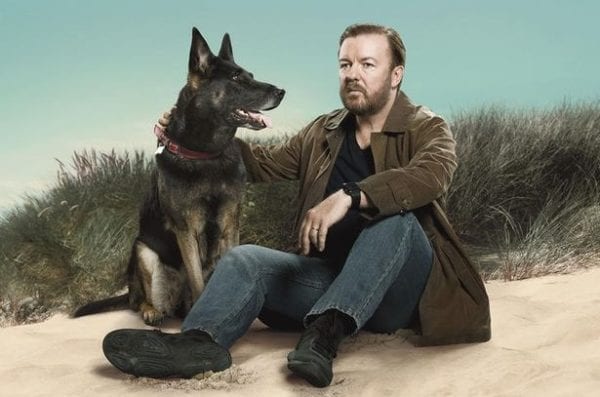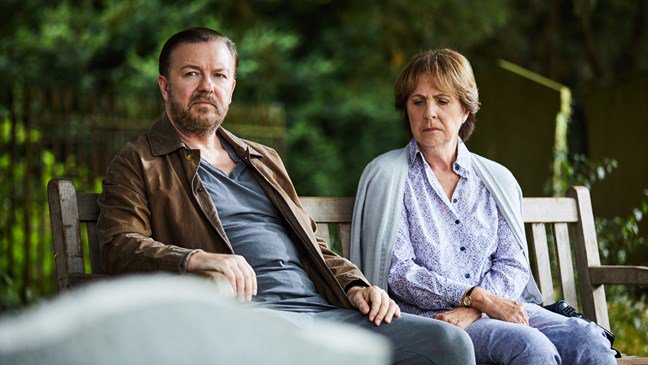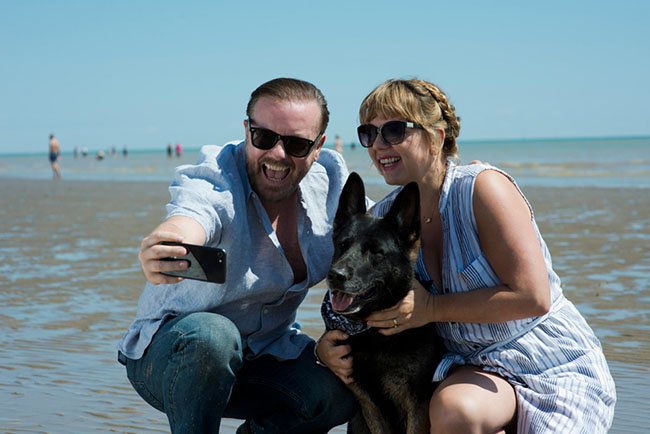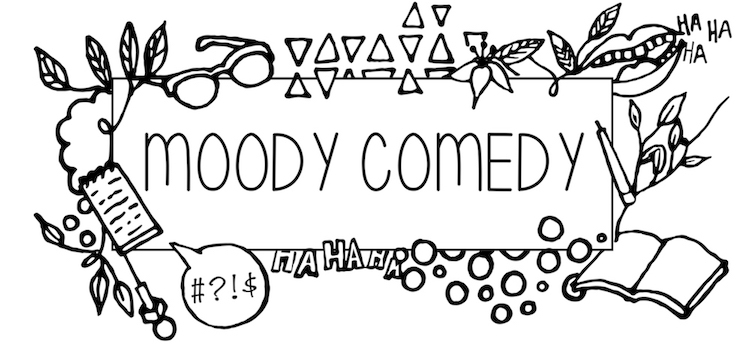TV Review: After Life
[usr 5]
Ricky Gervais has completely shaken up our perceptions of what he is capable of with his latest series After Life, showing how this comic can do heart-breaking as well as hilarious.

Set in the height of a beautiful English summer, After Life follows Tony, a middle-aged man who becomes suicidal after the death of his wife leaves him without purpose and without joy. He works as a features editor for a free local newspaper, cares for his dog Brandy, and visits his senile father (David Bradley) each day. In the fog of his depression, Tony decides to abandon all rules of politeness when it concerns people whom he deems undeserving. He chooses say what he wants, to whoever he wants because he no longer cares about the consequences.
After Life, at its core, is about the loneliness of losing that one person that makes the rest of the world fade into insignificance. It’s the kind of loss that forces you to look out into the world and take accountability for your place within all of that. The death of his wife Lisa completely shakes Tony’s world because he no longer has the excuse of locking the front door and turning the TV on, safe in the comfort that it’s those two against the world. In a strange way, the death of Lisa has forced him to acknowledge that he too is a participant in the world. And it’s this realism that makes After Life so terrifying. Gervais is not presenting us with anything particularly out of the ordinary; this is a real, genuine tragedy that many of us will endure at some point in our lifetimes.
Viewers will no doubt have an inkling as to where the narrative will end up, and After Life is almost the modern day A Christmas Carol that the trailer suggests it might be. Some of the dialogue is clunky in places, particularly Tony’s self-righteous, morbid verbal attacks, which are more frequent during the first episode as the programme begins to establish itself.

The words spoken do, however, consistently feel as though they are aiming at truth. Gervais’ personal passions are at the forefront of this series, more so than ever before. His love of animals and contempt of religion are prominent themes. In the moments where the writer’s personal views are most prominent (such as when Tony informs Sandy that ‘humanity is a plague’), criticisers of Gervais’ stand-up will no doubt have a field day. Yes, some of Tony’s arguments seem to be lifted straight from Gervais’ past stand up shows and old XFM Radio podcasts, but why not? They remain relevant because Gervais remains passionate about the ideas, and articulates them so persuasively.
The cast is made up of many of Gervais’ regulars, and is saturated with an abundance of strong female talent, from Mandeep Dhillon, to Roisin Conaty, to Diane Morgan. Whilst most characters arguably exist as pawns for After Life to drive its message home, they are still relatively complex and each have their unexpected quirks. Penelope Wilton in particular delivers a brilliant and emotive performance as Anne, a widowed senior who exudes the compassion that Tony doesn’t know he needs. Another character refreshingly overt in her moral judgements is Tony’s father’s nurse (Ashley Jensen), who, like Anne, doesn’t take any of Tony’s shit.

These outspoken characters are pivotal for Tony’s own journey, as they highlight how Tony’s grief is making him selfish and leaving him failing to remember (or care) that every person is hurting in some way, to some extent. At the end of the day, Tony isn’t really a Scrooge. In fact, as the series progresses it becomes increasingly clear that there’s a bit of Tony in all of us. He has a hatred of idiocy and a contempt of pointless conversation, but he is also kind, quick-witted and down to earth.
Gervais perfectly captures the rage that can come with feeling depressed. He subtly and intricately depicts how everything can feel like an offence, everyone else is an obstacle that reminds us of our own pain, and yet what hurts more is turning the mirror and reflecting on one’s own actions. But as the series develops, the genuine, pure humanity in each character is allowed to shine through. After Life shows human nature in its best light. The vast majority of people are kind and generous people who suffer and live.
After Life is a stunning and heartbreakingly poignant depiction of love, loss and the human condition. And with the soundtrack being enough to induce tears alone (including the master, Nick Cave, as well as Mogwai and Daughter), it is an undeniably moving dramatic feat. The overwhelming message is that good people (and dogs) really can remind you that you are good too. And what could be more beautiful, or important, than that?
